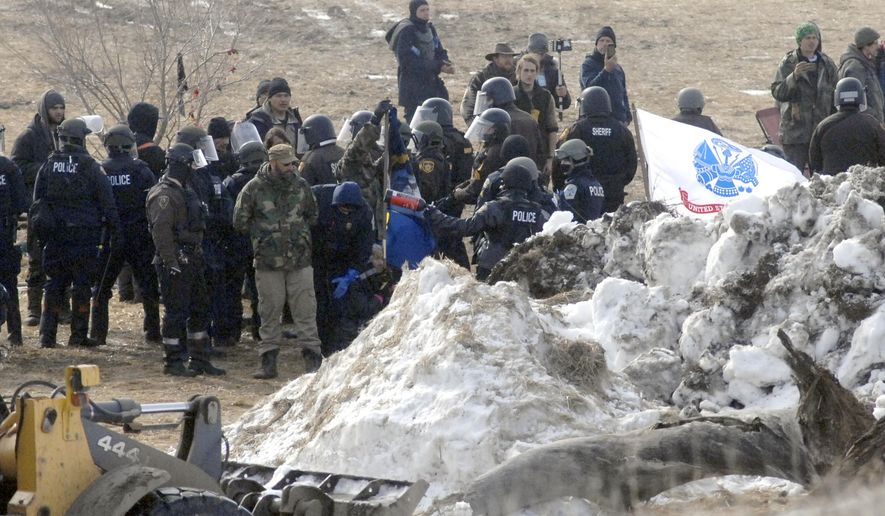BISMARCK, N.D. (AP) - Greenpeace is dropping an effort to move a lawsuit alleging it conspired against the Dakota Access oil pipeline from North Dakota state court to federal court - a possibly friendlier venue to the environmental group.
Greenpeace had cited federal law dealing with court jurisdiction to try to get the state case moved to federal court, where the group had already prevailed against racketeering claims alleged by Texas-based pipeline developer Energy Transfer Partners.
ETP disputed Greenpeace’s argument that federal court had jurisdiction over its latest lawsuit. Greenpeace attorneys in a late Friday court filing acknowledged the company was correct and agreed to leave the lawsuit in state court.
Greenpeace maintains ETP’s latest claims are a “duplicative” attack on free speech and political advocacy.
“Plaintiff’s relentless vendetta risks chilling the advocacy of Greenpeace and other environmental groups, and if adopted more broadly by big industry as a strategy, has more ominous implications for advocates across the political spectrum who face large corporations with deep pockets,” attorney Derrick Braaten wrote in a recent filing.
ETP alleges Greenpeace and activists conspired to use illegal and violent means such as arson, harassment and misleading information to disrupt pipeline construction and damage the company’s reputation and finances, all the while using the highly publicized and prolonged protest to enrich themselves through donations.
Groups and Native American tribes that feared environmental harm from the pipeline staged large protests that resulted in 761 arrests in southern North Dakota over a six-month span beginning in late 2016. The pipeline that ETP maintains is safe began moving North Dakota oil through South Dakota and Iowa to a shipping point in Illinois in June 2017.
ETP sued Greenpeace and others in federal court two months later, making claims under the federal Racketeer Influenced and Corrupt Organizations Act and under North Dakota laws. U.S. District Judge Billy Roy Wilson eventually ordered the company to amend what he criticized as a “vague” lawsuit and ultimately dismissed the case in February, saying there was no evidence of a coordinated criminal enterprise that worked to undermine ETP and the pipeline.
Wilson did not rule on the state claims, however, and ETP sued in state court a week later. Greenpeace made a technical argument for moving the dispute back to federal court. The group cited a federal law stipulating federal courts have jurisdiction over cases in which the plaintiffs and defendants are in different states. ETP attorney Lawrence Bender effectively argued that was not the case.
Braaten in court filings alleges ETP’s current “convoluted suit” is really aimed at saddling Greenpeace with “extraordinary litigation costs” and silencing the group’s public criticism.
___
Follow Blake Nicholson on Twitter: http://twitter.com/NicholsonBlake




Please read our comment policy before commenting.